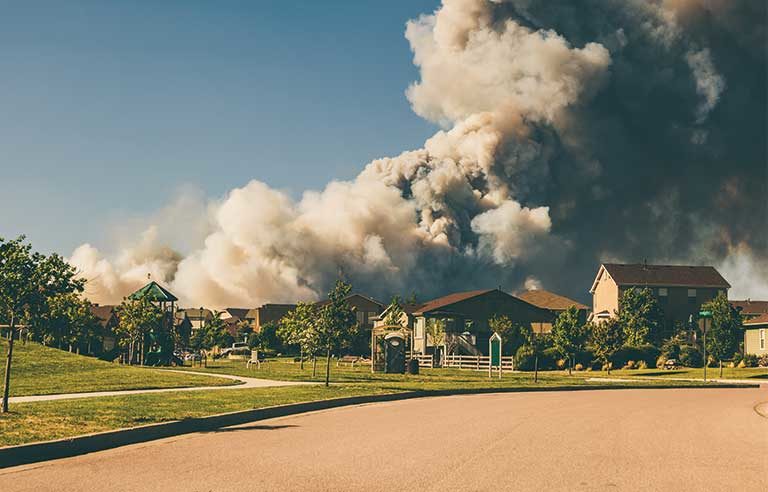California enacts emergency wildfire smoke standard for outdoor workers

Sacramento, CA — An emergency regulation in California intended to protect outdoor workers from potentially dangerous wildfire smoke was enacted July 30 by the state’s Division of Occupational Safety and Health, also known as Cal/OSHA.
The regulation, approved by the agency’s Standards Board on July 18 and the Office of Administrative Law on July 29, requires employers to provide N95 respirators to workers when the local air quality index for the smallest particulate matter – PM2.5 – is 151 or higher, and when employers reasonably anticipate that employees could be exposed to wildfire smoke. An AQI above 150 is considered unhealthy, according to the Environmental Protection Agency.
Employers also are required to:
- Identify harmful exposure levels from wildfire smoke before each shift and periodically thereafter by checking the AQI where workers are located.
- Reduce exposures, if possible, by relocating work to an enclosed building with filtered air or an outdoor area with a safer AQI level.
If employers cannot reduce workers’ exposure to harmful wildfire smoke, they must provide N95 respirators to all employees for voluntary use and train workers on their safe use and maintenance. Additionally, they must educate workers on the new regulation and the health effects of wildfire smoke.
| Sign up for Safety+Health's free monthly email newsletters and get the news that's important to you. |
The rule is effective through Jan. 28, with two potential 90-day extensions, a California Department of Industrial Relations press release issued July 30 states.
Cal/OSHA will convene an advisory committee meeting on Aug. 27 in Oakland to discuss adopting the regulation permanently using the rulemaking process, the release states.
In February, state Assemblymember Brian Maienschein (D-San Diego) introduced legislation (A.B. 1124) that would require employers to provide respirators to protect outdoor workers against smoke from wildfire or burning structures as a result of wildfires.
Post a comment to this article
Safety+Health welcomes comments that promote respectful dialogue. Please stay on topic. Comments that contain personal attacks, profanity or abusive language – or those aggressively promoting products or services – will be removed. We reserve the right to determine which comments violate our comment policy. (Anonymous comments are welcome; merely skip the “name” field in the comment box. An email address is required but will not be included with your comment.)

